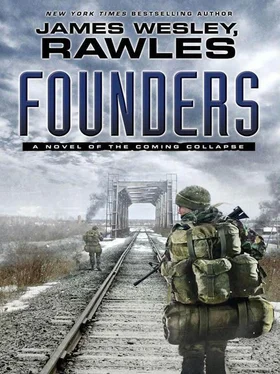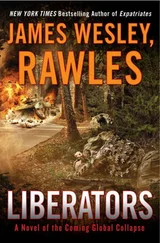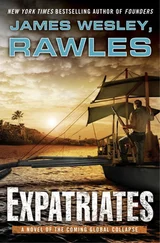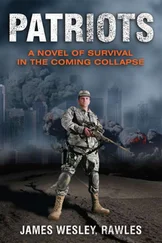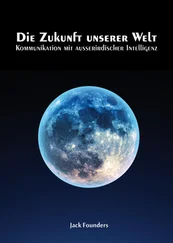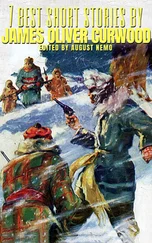James Rawles - Founders
Здесь есть возможность читать онлайн «James Rawles - Founders» весь текст электронной книги совершенно бесплатно (целиком полную версию без сокращений). В некоторых случаях можно слушать аудио, скачать через торрент в формате fb2 и присутствует краткое содержание. Город: New York, Год выпуска: 2012, ISBN: 2012, Издательство: Emily Bestler Books, Жанр: sf_postapocalyptic, на английском языке. Описание произведения, (предисловие) а так же отзывы посетителей доступны на портале библиотеки ЛибКат.
- Название:Founders
- Автор:
- Издательство:Emily Bestler Books
- Жанр:
- Год:2012
- Город:New York
- ISBN:978-1-4391-7282-7
- Рейтинг книги:5 / 5. Голосов: 1
-
Избранное:Добавить в избранное
- Отзывы:
-
Ваша оценка:
- 100
- 1
- 2
- 3
- 4
- 5
Founders: краткое содержание, описание и аннотация
Предлагаем к чтению аннотацию, описание, краткое содержание или предисловие (зависит от того, что написал сам автор книги «Founders»). Если вы не нашли необходимую информацию о книге — напишите в комментариях, мы постараемся отыскать её.
Founders — читать онлайн бесплатно полную книгу (весь текст) целиком
Ниже представлен текст книги, разбитый по страницам. Система сохранения места последней прочитанной страницы, позволяет с удобством читать онлайн бесплатно книгу «Founders», без необходимости каждый раз заново искать на чём Вы остановились. Поставьте закладку, и сможете в любой момент перейти на страницу, на которой закончили чтение.
Интервал:
Закладка:
As the news of the impending victory spread, more than 10,000 militia unit members from as far away as Georgia, Arkansas, Iowa, Michigan, and Pennsylvania began overnight drives to Fort Knox. They had a celebration to attend.
There was a long delay before the prisoners from the Waybur were loaded onto eighty-passenger personnel carrier vans, since each one had to be individually searched. Not counting the 416 pistols and revolvers that had been dropped to the floor of the theater, the troops found eighteen pistols in shoulder and waistband holsters, eighty-four pocketknives, fifteen boot knives, twenty-nine sheath knives, two garrotes, seven saps, three pairs of brass knuckles, four nunchakus, three hand grenades, and twenty-six containers of pepper spray or tear gas. There were also more than 100 cell phones and radios confiscated, forming a large pile on the pavement.
The personnel carrier vans, each towed by a tractor truck, were a familiar sight at Army forts where basic training and Advanced Individual Training (AIT) were conducted. These replaced the older “silver side” cattle cars, but still looked very utilitarian. The vans also worked fine for hauling prisoners when they had their doors chained shut. Escorting Humvees bristling with guns ensured that none of the prisoners tried to leap from the windows.
At the same time that the arrests were going on at the Waybur, many Hutchings cabinet staffers and UN officers were also arrested. Some who were considered high-risk were jailed in the Building 204 Stockade.
By dawn, the group at the Abrams Auditorium swelled, with an additional 416 foreign officers and NCOs arrested on- or off-post during the rest of the night. By the next evening they began shuttling the prisoners in groups of thirty to a new makeshift prison camp that was set up in the old Basic Combat Training (BCT) Disney Barracks complex—the area commonly called “Disneyland.”
Creating the prison fence around the barracks complex took all three companies of the 19th Engineer Battalion two full days. Almost 200 pallets of concertina and razor wire were strung out and stacked six courses high. Some of the NCO prisoners were ignominiously detailed to help string the wire for their own prison camp. Three days later, the temporary concertina wire fence was supplemented by an array of passive IR sensors. Then a chain link fence was added, also topped with concertina wire.
Of the UNPROFOR troops who were arrested during the summer of victory, there were a few suicides by known rapists and “liquidators” who feared being brought to justice. After some debate, the Restoration of the Constitution Government (RCG) issued a general amnesty to UNPROFOR troops for embezzlement, theft, possession of stolen goods, and possession of stolen military property, but for no other crimes. The logic was that even some ostensibly good officers and NCOs had been given a share of loot. The prevailing culture in the New Army, it was argued, was to accept a share of loot, or else be suspected of disloyalty.
27. Anthem
“Statesmen, my dear Sir, may plan and speculate for Liberty, but it is Religion and Morality alone, which can establish the Principles upon which Freedom can securely stand. The only foundation of a free Constitution is pure Virtue, and if this cannot be inspired into our People in a greater Measure than they have it now, They may change their Rulers and the forms of Government, but they will not obtain a lasting Liberty. They will only exchange Tyrants and Tyrannies.”
—John Adams, Letter to Zabdiel Adams, June 21, 1776, in Letters of Delegates to Congress: Volume 4, May 16, 1776–August 15, 1776At just before noon on July Fourth, everyone congregated at the Brooks Field parade ground. They quietly lowered the UN flag and raised Old Glory without much fanfare. Resistance soldiers cut up the UN banner into small swatches for souvenirs.
A mobile PA system was set up, with a pair of speakers and a microphone stand. There was no time to arrange for a band to play or for an artillery salute, but a bespectacled former Marine with a double chin and an amazing singing voice gave an a cappella rendition of all four verses of “The Star-Spangled Banner”:
Oh, say can you see by the dawn’s early light
What so proudly we hailed at the twilight’s last gleaming?
Whose broad stripes and bright stars thru the perilous fight,
O’er the ramparts we watched were so gallantly streaming?
And the rocket’s red glare, the bombs bursting in air,
Gave proof through the night that our flag was still there.
Oh, say does that star-spangled banner yet wave
O’er the land of the free and the home of the brave?
On the shore, dimly seen through the mists of the deep,
Where the foe’s haughty host in dread silence reposes,
What is that which the breeze, o’er the towering steep,
As it fitfully blows, half conceals, half discloses?
Now it catches the gleam of the morning’s first beam,
In full glory reflected now shines in the stream:
’Tis the star-spangled banner! Oh long may it wave
O’er the land of the free and the home of the brave!
And where is that band who so vauntingly swore
That the havoc of war and the battle’s confusion,
A home and a country should leave us no more!
Their blood has washed out their foul footsteps’ pollution.
No refuge could save the hireling and slave
From the terror of flight, or the gloom of the grave:
And the star-spangled banner in triumph doth wave
O’er the land of the free and the home of the brave!
Oh! thus be it ever, when freemen shall stand
Between their loved home and the war’s desolation!
Blest with victory and peace, may the heav’n rescued land
Praise the Power that hath made and preserved us a nation.
Then conquer we must, when our cause it is just,
And this be our motto, “In God is our trust.”
And the star-spangled banner in triumph shall wave
O’er the land of the free and the home of the brave!
This was the first time the Ben had ever heard the usually omitted later verses. Like many others who were gathered, the lyrics moved him to tears.
Then Andy Laine stepped up to the microphone and pulled a sheet of handwritten notes from his ACU shirt pocket. “My only regret,” he began, “is that I didn’t join the Resistance sooner. I’m from New Mexico, and it took a long time for the ProvGov to become a threat to our liberty there. If I had only known the full depth of the ProvGov’s crimes, I would have joined the fight sooner.”
Andy cleared his throat, and went on:
I’m not an eloquent speaker, so I don’t have the proper words for this sort of momentous occasion. I will just let the words of our Founding Fathers express my sentiments. First, I’d like to quote from George Washington, the man who could have been appointed our nation’s king, but who humbly demurred. In his farewell address to his cabinet, Washington said:
“Of all the dispositions and habits which lead to political prosperity, religion and morality are indispensable supports. In vain would that man claim the tribute of patriotism who should labor to subvert these great pillars of human happiness, these firmest props of the duties of men and citizens. The mere politician, equally with the pious man, ought to respect and to cherish them. A volume could not trace all their connections with private and public felicity. Let it simply be asked: Where is the security for property, for reputation, for life, if the sense of religious obligation desert the oaths which are the instruments of investigation in courts of justice? And let us with caution indulge in the supposition that morality can be maintained without religion. Whatever may be conceded to the influence of refined education on minds of peculiar structure, reason and experience both forbid us to expect that national morality can prevail in exclusion of religious principle…. Observe good faith and justice toward all nations. Cultivate peace and harmony with all. Religion and morality enjoin this conduct; and can it be that good policy does not equally enjoin it?”
Читать дальшеИнтервал:
Закладка:
Похожие книги на «Founders»
Представляем Вашему вниманию похожие книги на «Founders» списком для выбора. Мы отобрали схожую по названию и смыслу литературу в надежде предоставить читателям больше вариантов отыскать новые, интересные, ещё непрочитанные произведения.
Обсуждение, отзывы о книге «Founders» и просто собственные мнения читателей. Оставьте ваши комментарии, напишите, что Вы думаете о произведении, его смысле или главных героях. Укажите что конкретно понравилось, а что нет, и почему Вы так считаете.
